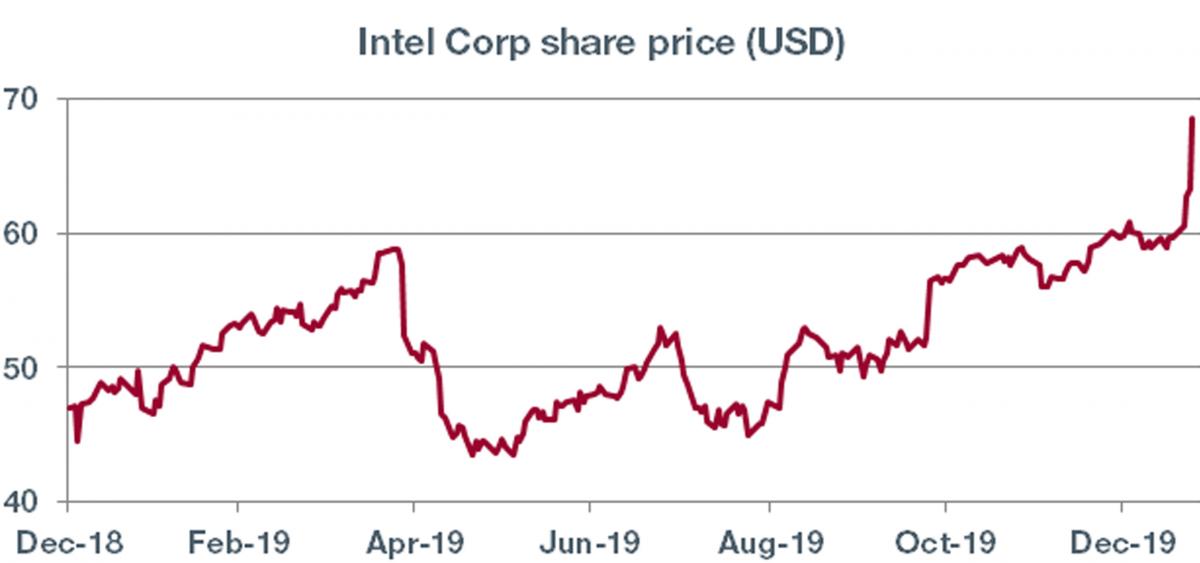27/01/2020
Flash boursier
Key data
| USD/CHF | EUR/CHF | SMI | EURO STOXX 50 | DAX 30 | CAC 40 | FTSE 100 | S&P 500 | NASDAQ | NIKKEI | MSCI Emerging MArkets | |
|---|---|---|---|---|---|---|---|---|---|---|---|
| Latest | 0.97 | 1.07 | 10'849.75 | 3'779.16 | 13'576.68 | 6'024.26 | 7'585.98 | 3'295.47 | 9'314.91 | 23'827.18 | 1'119.39 |
| Trend | |||||||||||
| %YTD | 0.52% | -1.35% | 2.19% | 0.91% | 2.47% | 0.77% | 0.58% | 2.00% | 3.82% | 0.72% | 0.42% |
Highlights:
1. Coronavirus casts a cloud
2. ECB makes no changes to policy rates
Coronavirus sends a chill through markets
For now investors are struggling to get a grip on the impact that the latest Chinese epidemic may have on global growth. The outbreak of SARS (severe acute respiratory syndrome) is still fresh in their minds. Back then, this epidemic represented – according to the Asian Development Bank – a business shortfall of USD 18 billion in south-east and eastern Asia, which at the time represented 0.6% of regional GDP.
Since then, however, China has become a much bigger hitter, with the result that any lasting slowdown in business (beyond the holiday for the lunar new year) would have a much severer impact on the economies of all its neighbouring countries. China has also become the largest consumer of virtually all types of raw materials and is the foremost trading partner of many countries. The price of crude oil, for one, could be hit by restrictions on movement as well as the downturn in business activity.
The decision by the World Health Organisation (WHO) to class the epidemic – for now – as a public health emergency restricted to China has slightly reassured investors. The Chinese government has instigated firm measures to reduce the risk, both in its own territory and abroad. All trains and planes departing from Wuhan have been cancelled, and motorways into and out of the city are shut. Altogether, 13 municipalities are quarantined, representing over 45 million inhabitants. That is more than the population of Poland.
In Europe, the ECB last week left its rates on hold, keeping policy ultra-loose in support of the economy. Rates will be unchanged until the official inflation target of below but close to 2% has been reached. Quantitative easing has been kept at EUR 20 billion.
Recent indicators substantiate the idea that the global economy is picking up, especially in Europe, where some data releases in recent weeks have beaten expectations. The German economy has seemingly found a floor, with growth in the private sector starting to pick up pace. The latest composite PMI reached its highest level in five months, following an improvement in both services and manufacturing. France has also made a solid start to the year, reporting higher production output than forecast.
Intel Corp (ISIN: US4581401001, price: USD 68.47)
Intel, the world’s largest producer of computer chips, has reported an excellent set of Q4 results that sailed past analysts’ expectations – helped by two combined factors.
First was the brisk demand from cloud service providers, sending sales in this segment surging by 19%. This now accounts for almost one-third of revenues.
Secondly the PC division is recovering as more and more users upgrade their machines after Microsoft pulled support for Windows 7.
It is hard to say whether the share’s new life of lease will be long lasting. Infrastructure spending by cloud service providers is not a recurrent item. These companies expand capacity in stages and then take time to ‘digest’ what they have installed. PC sales are not rising and their market share is still being eroded by tablets and smartphones.
In contrast, the Philadelphia Semiconductor Index, which tracks the 30 largest chip producers, is seemingly on an uptrend, in contrast to rocky year that was 2018. This could signal a cyclical recovery for chipmakers.


 Flash boursier
Flash boursier
